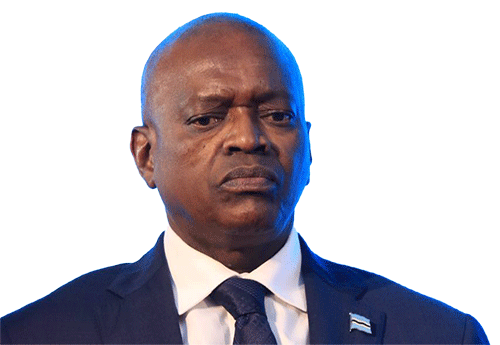WALVIS BAY – Botswana president Mokgweetsi Masisi has urged the Namibian, Zimbabwean, and Zambian heads of state, together with himself, to collaborate and commit to developing an ecosystem for the beneficiation of the four countries’ natural resources.
Masisi emphasised the need to share talent, stressing that each African country has unique expertise and resources that can be used to stimulate job creation.
“Botswana, Namibia, and Zimbabwe have diamonds, beautiful diamonds. Zambia has a lot of copper, cobalt, and other minerals. What we need to do is commit to making sure that we collaborate in developing an ecosystem for the beneficiation of all our natural resources,” he noted.
Speaking during the World Children’s Day commemorations that took place on Sunday at Walvis Bay, he said there is a need to “open up and do more; we owe it to our children”.
“When we raise more money through collaborative efforts, we will be able to spend more money on our children. So, we are going to stop the exploitation of our own raw materials,” he said.
He urged his fellow leaders to cement this collaboration and partnership with children so that they can develop indicators of success.
“It is not enough for us to gather every year and have a little engagement and forget it for another 12 months and then come back and have an event.
This is not an event; it is a process. So let us commit and resolve that we are going to develop indicators with responsibilities for each of the leaders, and the standards measured, creating opportunities for our children with our own resources,” Masisi appealed.
Earlier this month, President Hage Geingob, while addressing the Namibia-European Union (EU) business summit in Brussels, reiterated the Namibian government’s stance on no longer exporting minerals in raw form.
“Namibia’s economy is linked to the extraction and processing of minerals for export, contributing significantly to our gross domestic product (GDP) and foreign exchange earnings. However, we are no longer going to export raw minerals,” the President said at the time.
According to Geingob, this ban aims to improve the sustainability of the extractive industry and develop local processing, refining, recovery, and recycling capacity. Geingob expressed satisfaction that some local mining companies with EU partners are willing to add value to the country’s critical raw minerals.
These critical raw materials include lithium, cobalt, and rare earth metals.
“We are trying to grow and diversify our economy and create new jobs,” he said.
Geingob emphasised that Africa faces a challenge with high unemployment, leaving many graduates without jobs. Ending the exportation of raw materials from Africa can stimulate its economy and create much-needed jobs, business opportunities, and skills development, he said.
Also speaking at the commemoration, the Namibian leader recommended that such an exercise be spread throughout Africa as it promotes African unity.
“We must expand it to more countries as convening like this promotes African unity. You are the future; you are either today or tomorrow in offices. Therefore, when you are groomed like this, you will understand the Africa that we all want,” Geingob said.
The World Children’s Day commemorations shed light on key issues affecting youth such as unemployment, access to education, and job creation.
This year’s celebrations build on the momentum created in Botswana in 2021 and Zambia in 2022 during regional engagements, which involved the presidents of Botswana, Namibia, Zambia, and Zimbabwe.
– edeklerk@nepc.com.na


